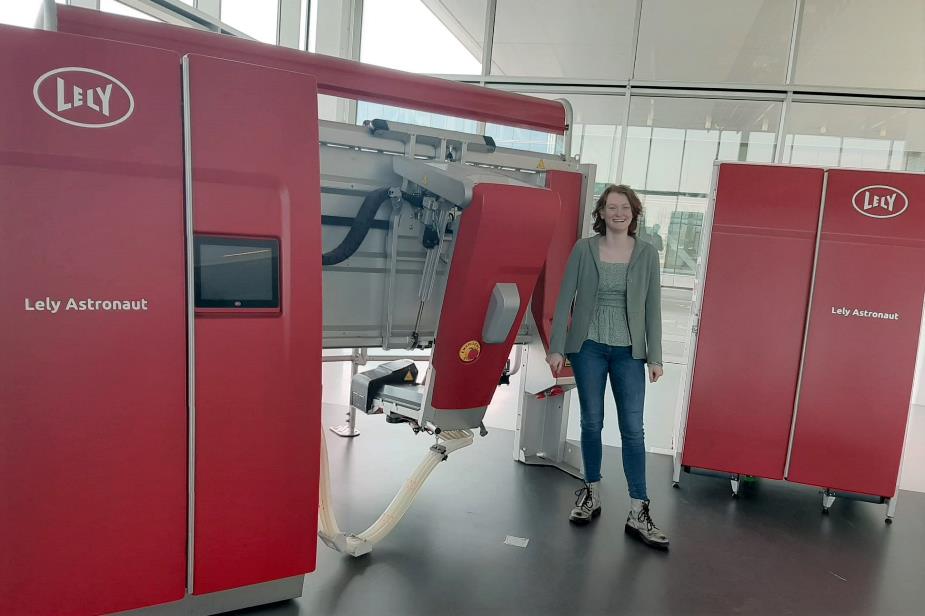DHDD session #11 - an inclusive city
1 April 2022
On Thursday 17 March, the 11th edition of Den Haag Draait Door took place at the Zuiderpark Sports Campus of The Hague University of Applied Sciences. The session, introduced by Frank van Eekeren (Impact of Sport...

On Thursday 17 March, the 11th edition of Den Haag Draait Door took place at the Zuiderpark Sports Campus of The Hague University of Applied Sciences. The session, introduced by Frank van Eekeren (Impact of Sport professor), was about The Hague as an inclusive city. An inclusive city in several areas: in sports, education, the systemic world and the physical environment.
After the plenary start of the programme, with short presentations by the workshop leaders, the group spread out through the building to participate in the workshops.
Workshop 1: Sport as a way of promoting inclusion
This workshop was given by Jasmijn Holla (Professor Power of Sports, Inholland University of Applied Sciences) and Monique Berger (Professor Technology for inclusive sport, The Hague University of Applied Sciences). They hosted the workshop together with students Leonie and Dorien, who are both enrolled in the minor 'Nobody Offside' at the Sports Campus. Earlier during the plenary presentation, the students talked about their experiences during the minor and their perception of inclusive sports in areas such as legislation and regulations.
In the workshop on sports as a means of promoting inclusion, the meaning of inclusive sports and exercise was discussed on the basis of examples and statements from sports and exercise for people with disabilities. Inclusive sports and exercise is about having a choice, feeling that you belong, equality, removing barriers and being able to participate. Recognising that everyone is unique and being open to diversity are important conditions. It was discussed that inclusive sports is about a broader group than just people with disabilities, and that other groups such as LGBTIQA+ and people with a migration background should also be considered. The importance of an inclusive, exercise-friendly public space was also discussed, as well as how sports and exercise can contribute to social inclusion in a broader sense.
Workshop 2: The neighbourhood function of a building
This workshop was introduced by Maarten Bonarius (Director of Special Facilities, Regional Training Centre Mondriaan) and Katja Rusinovic (professor in Metropolitan Issues, The Hague University of Applied Sciences). Together with the participants, they discussed the organisation of the ROC Mondriaan building De Meppel: a future building on the Meppelweg in The Hague South-West that is to become a recognised learning and development centre. As of August 2022, the building will house the entry-level programmes of the Regional Training Centre Mondriaan. The workshop discussed programming in the building and how it can connect with the neighbourhood. The conversation confirmed to the Regional Training Centre Mondriaan that they are on the right track. The perspective of the participating university of applied sciences students was of added value. They emphasised the function of role models in helping to create a network, a network that local residents often don't have or don't know how to create. De Meppel and the contacts we organise in and with De Meppel can be of added value here.
Workshop 3: Inclusion in higher education
Aya Ezawa, Diversity Officer of Leiden University, talked to the participants about diversity and what it takes to create an inclusive learning environment. A topical theme in higher education. This was also evident from the discussions that were held. The participants, involved in inclusion at various knowledge institutions, agreed to meet more often.
Workshop 4: Inclusion through inclusive work? A case study from sport and exercise
Does inclusive work actually lead to more inclusion? On the basis of a case study introduced by Tom Arnoldus (domain support officer for Attractive City, Municipality of The Hague) and Frank van Eekeren (Impact of Sport professor, The Hague University of Applied Sciences), the participants engaged in a discussion while walking through The Hague South West. In this case study about a committed neighbourhood resident who wanted to encourage older neighbours to exercise more, was there inclusion? Where should a resident take their good idea? And what is the procedure for implementing the idea? Or how should it be done? There were good discussions and a lot of recognition. The group discussed participation fatigue, meeting culture, similar examples and the awareness that inclusive work takes time and is supposed to take time.
Social get-together
The social get-together, with a view of the professional sports beach volleyball courts at the Sports Campus provided an opportunity for the participants to reflect on the day and get to know each other better. We look back on a fruitful day full of connections and look forward to the next session of Den Haag Draait Door!